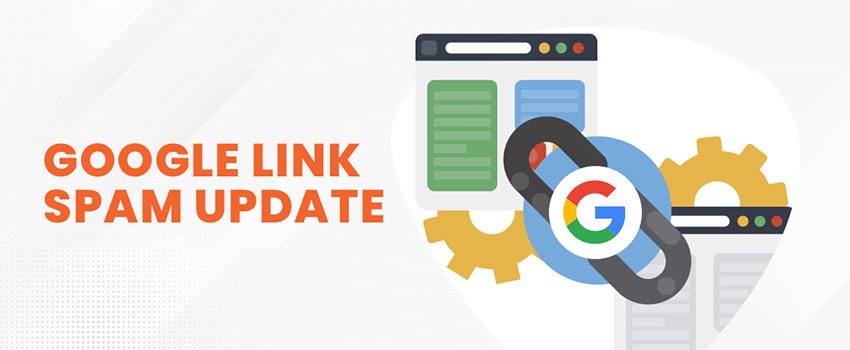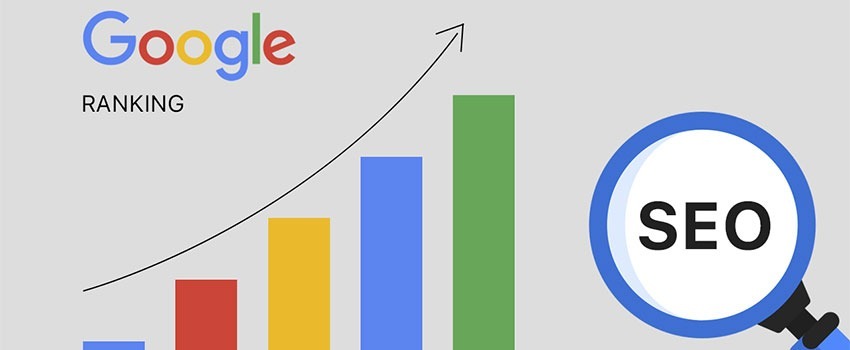User Experience: An Important SEO Factor
Hearing of any crucial factor in SEO should get you very inquisitive about what it is, what you can learn from it and how it can be to your advantage. Well, in this post, we will be looking at User Experience. User Experience signals basically tell Google how well your website is performing in terms of addressing the needs and answers people who visit your website seek. Because Google is basically a search engine providing answers and information people seek, does this suggest that User Experience could be a most important SEO metric to gain the top ranking position you have sought and labored for over the years? Well, not really, but definitely, it is something you should take very seriously. There are a lot of factors taken into consideration by the Google ranking algorithm and so gaining top ranking is not so simply determined by one factor.
We’ve been in the business of optimizing client websites and this post is based on our observations and experiences about what worked and still works. We’ll get to find out.
Further reading:
SEO Guide to Write Optimized Meta description
27 On-Page SEO Checklist for Top Search Engine Performance
Can One Thing Be All That Matters?
Yes! Good Quality SEO is just one thing we can say is the most important factor that matters to Google. The idea is that Google is very interested in the quality of its search results, it strives to deliver the best results to users so whatever makes Google’s users happy and impressed with search results is what Google itself loves most. So, for your website to rank at the top position in the Google Search Engine Result Pages (SERPs), user happiness is key to determining its good quality. User Experience (UX) is itself influenced by a whole lot of other factors.
Let’s Begin With What is SEO?
It’s essential we draw you closer to what we mean, talking about SEO, and the context it is used and interpreted in this post.
SEO is an acronym for Search Engine Optimization and simply means, in this post, winning the heart of your website visitors and the search engines and getting a ranking gain in reward for the good works. So, SEO represents all that you do to impress the search engines and gain greater ranking for your website in their search engines. For this post, our attention is on the Google search engine. That’s because Google dominates the search engine world, controlling over 92 percent of search traffic.
So, SEO can be summarily defined as doing what Google loves and rewards with higher search engine rankings. If what you do diligently and in compliance with Google’s Webmaster Guidelines leads to higher ranking in the SERPs, then you are on the right path. Keep it up!
Understanding Good User Experience
Good user experience will include those signals that make website users happy. These signals top Google’s definition of website quality. Focusing on what makes users happy will be enough to give your website a fast boost to the top. We will examine all these factors and you can tweak to gain a better advantage. But first let us look at those indicators of good user experience.
How Do You Know Users Are Happy?
There are some critical factors that will tell you how happy your users are and whether or not visitors are happy when they visit your website. Here are a couple of useful indicators you should pay attention to:
Click Through Rate (CTR)
This represents the rate at which people who see your listing in the search engines click to visit your website. It is a ratio calculated in percentage. So if 20 out of 100 visitors to whom your website listing were exposed click on your listing, then your website has a click through rate of 20 percent.
This ratio is important because it tells the search engines that your presentation is great, attractive to users and so must be of good quality. You need to improve on the signals that get people to click your content as displayed in search results.
Further reading: Beginner Guide to Internet Marketing
Bounce Rate
The Bounce Rate is defined by the ratio of visitors who leave the site without visiting any other page outside their landing page. Bounce rate in itself is not a ranking signal but it is an indication of user interest for website content. When bounce rate is high, it suggests your content is boring, unable to address the problems users seek to solve.
Further reading:
How to Fix Website Bounce Rate Problems
Dwell Time
How much time people spend on your website speaks of how much your content draws the attention of users and addresses their concerns. When people spend very little time on a page, it suggests the content did not capture their attention and did not offer a satisfactory solution.
How to Improve User Experience
Investing in improving user experience is key to rank boost. In fact, even a slight improvement in user experience metrics will impact website ranking. But improving website performance in this respect requires diligence. One thing you must take into consideration is the use of analytics to determine and understand how you are performing in relation to competitors. Once you determine how you are performing in respect of user experience, here are important user experience metrics you should watch and improve for better performance.
Mobile Friendliness
Mobile device usage has increased tremendously and currently has surpassed desktop usage for search. How your website displays on mobile devices like Android phones, Apple (iphones) and tablets has become very important for usability. Ensure that your website resolution on both desktop and mobile devices are perfect. Fortunately, most web design tools today come with mobile friendly versions out of the box. They automatically will resolve perfectly on every screen size.
Speed
Speed is critical to improve bounce rate and dwell time. More than that, Google has expressly stated that speed is a ranking factor. Speed improvement is important to boost user experience. The first thing you need to do is to test your website speed. If your website loads in less than 3seconds, that’s not bad. E-commerce websites should load faster as people want to spend less time shopping. However, if your website speed is good, you need not invest a lot of time to improve its speed. We advise you to look at other important factors and work on them.
Speed is very important and has been identified as a key factor that influences bounce rate. Slow websites tend to have a high bounce rate when compared with fast websites.
Tips to Boost Website Speed
Enable caching. For static pages, this may not be a problem and all you may need to do is to enable browser caching. However, if you use content management systems like WordPress and Joomla or you run a robust e-commerce store with Magento, OsCommerce or any other e-commerce application, you will need to implement a caching application like a caching plugin to speed up your website.
Use a reliable web host – Server speed and capability is key to determining website speed. Servers that run on Litespeed and Solid State Drives (SSD) are faster than SSD servers. So review and select your web host carefully.
Optimize images – Images account for a huge portion of file size and affect the loading speed of websites. Optimizing images before you use them can help mitigate this problem. Fortunately, there are some very effective tools available online that can help you optimize images for the web.
Minify CSS and Javascripts – CSS and Javascript minification can help with your speed performance. It will compress the size of your Javascript and CSS files and speed up your website. Fortunately, there are plugins available for various applications to compress and minify the scripts.
Use GZip Compression – Compression can significantly reduce your file size and speed up your website. Fortunately, most servers already have file compression enabled and where this is not the case, you can enable it with the .htaccess file.
Use Call to Action
A desired action could range from a click to a purchase. Whatever is the desirable cause of action, users need to be guided to take the appropriate and desired actions with a “call to action”. The message should encourage users to take action and should convince them of the benefits of the action. For instance, it is more effective asking users to download a free e-book guide on best SEO practices by subscribing rather than just asking users to subscribe to a newsletter.
Optimize Your Introductory Meta Tags
These include the page title, description and the publishing date. These are three important elements that affect click through rate. What search engines display in their results for searchers is what influences a click through and these three elements are key. Therefore, you will need to craft quality page titles, descriptions and keep your information updated in tune with the latest practices in the industry.
Publishing dates tend to influence click-through because searches consider recent publications to be more relevant and reflective of industry trends.
The best practice for writing a page title is to keep it below 55 characters. Some SEOs recommend keeping it under 70 characters. There is no punishment for exceeding the recommended limits but it truncates with long titles and we have found that keeping it around 50 to 55 characters is a good practice. Writing unnecessarily long titles will make you end up with keywords being stuffed in your title and Google detests that.
Description tags are another snippet that are visible to searchers. A well crafted description can significantly drive click through rates. Description tags should be optimally kept within 150 characters.
Keep Forms Simple
Simplify the data collection process when ordering. Registration processes should be as simple as possible. That speeds up the process and can improve customer experience.
Some Notes of Caution
We have extensively discussed the factors that can help improve your user experience. We should also warn against acts that can defeat every effort to improve user experience. These are what you should never attempt no matter how promising they present themselves. Here we go:
Don’t Try to Manipulate the Search Engines
Google and other search engines hate manipulation. Do not try to force search engines to do anything. Don’t also try to compel search engines to rank you high by cutting corners. Avoid practices like link exchanges, buying links and paid link inclusion to get an advantage. Google hates any action that tries to manipulate its search and will punish it.
Don’t be Over-Ambitious
Ranking in the search engines should be slow and steady. Set moderate goals and work to achieve them. Do not try to achieve the best within so short a time. It takes time.
Be Patient
Once you have done your work of optimizing your website, continue to work and build normally and be patient. It takes time to see the results of your efforts.
Don’t Neglect The Basics
Don’t just focus on building links for quick gains. Take care of the basics, optimize your titles, avoid titles that are too short or too long. Ensure the same for meta descriptions. Conduct keyword research and implement keyword usage across your content.
Don’t Ignore Competition
Failing to analyze your competitors is a disadvantage. Try to know what your competitors are doing and draw up a plan to out-smart your competitors.
Monitor Performance with Analytics
Arm yourself with analytic data to monitor the performance of your website on key user experience metrics. The key and leading analytics that can support you and provide actionable data are Google Search Console and Google Analytics. You may want to rely on other analytic tools to understand how your website performs on key on-page and off-page SEO.
Don’t Overdo Anything
It is important that you build your content and optimize with natural language. Do not try to overdo anything from page title to regular updates. If you have a blog, populate the blog naturally and ensure it is sustainable. Do not try to gain some advantage by publishing loads of new articles and then you end up unable to sustain the tempo. Remember that Google is interested in quality and not quantity.
Final Words
The search engines are meant for people and so whatever please searchers is what Google and other search engines love to do. Google also hates to be manipulated into presenting a result that is not truly representative of the actual situation. Therefore in optimizing your website for the search engines, focus on your users and write content to solve problems instead of just writing to impress the search engines. Focus on writing for your users and not the search engines.
Always bear in mind that the one thing that matters to Google is the experience of users and when your UX is positive and impressive, you are likely to be rewarded with higher ranking in the Google search engine result pages.
Also keep in mind that you have to optimize the structure of your website, do your on-page and off-page SEO right and improve the overall quality of your website. That way, you will see an appreciable rise in your ranking.. Remember not to be over-ambitious, ranking gains are gradual and you have to keep up with what works and watch the gradual improvement.
What’s your take on this? Let’s have them in the comments box.










